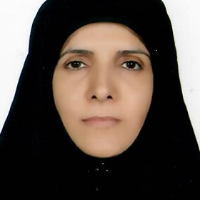The Effect of Family-centered Empowerment Model on Quality of Life of Female Patients with Pemphigus Vulgaris Referred to Razi Hospital
Author(s):
Article Type:
Research/Original Article (دارای رتبه معتبر)
Abstract:
Introduction
Pemphigus vulgaris is a chronic skin condition, which affects the skin and its appendages and like other chronic diseases, as well as different aspects of quality of life of the patients and their families. The current study aimed at evaluating the effect of family-centered empowerment model on quality of life of female patients with pemphigus vulgaris referred to Razi Hospital, Tehran, Iran.Methods
The matched, controlled, clinical trial was conducted on72 female patients with pemphigus vulgaris slected by by purposive sampling and randomly allocated to two groups of the intervention and the control. The data collection instrument included a demographic questionnaire, SF-36 quality of life inventory, which its validity and reliability was confirmed in previous studies (α = 95.9, r = %96.6), and family-centered empowerment model, which it validity (CVR = %82.5; CVI = %84.6) and reliability (α = 92.4; r = %86) was also confirmed. Data were collected in three stages (before, during, and after) of intervention. Intervention was implemented based on the family-centered empowerment model in four steps (perceived threat, promoting self-efficacy, increasing self-esteem and outcome, and process evaluations) for the intervention group and routine care was provided for the control group. Quality of life of patients with pemphigus vulgaris reviewed and compared before and 45 days after the intervention. Data were analyzed with SPSS version 24 using Chi-square, and independent and dependent t tests. P Results
Demographic variables were similar in both groups based on Chi-square test (P > 0.05). Independent t test showed that 10 dimensions of family-centered empowerment model were similar in both groups before the intervention (P > 0.05), but after the intervention paired t test showed significant differences only in the intervention group (P 0.05), but after the intervention paired t test showed significant differences only in the intervention group (P Conclusions
Family-centered empowerment model for patients with pemphigus vulgaris is feasible and associated with improvement of patient's quality of life. Due to the effectiveness of the family-centered empowerment model in improving the quality of life of patients with pemphigus vulgaris, it is recommended to generalize its specificities to other chronic skin diseases.Keywords:
Language:
Persian
Published:
Iranian Journal of Nursing Research, Volume:13 Issue: 54, 2018
Pages:
1 to 10
magiran.com/p1872295
دانلود و مطالعه متن این مقاله با یکی از روشهای زیر امکان پذیر است:
اشتراک شخصی
با عضویت و پرداخت آنلاین حق اشتراک یکساله به مبلغ 1,390,000ريال میتوانید 70 عنوان مطلب دانلود کنید!
اشتراک سازمانی
به کتابخانه دانشگاه یا محل کار خود پیشنهاد کنید تا اشتراک سازمانی این پایگاه را برای دسترسی نامحدود همه کاربران به متن مطالب تهیه نمایند!
توجه!
- حق عضویت دریافتی صرف حمایت از نشریات عضو و نگهداری، تکمیل و توسعه مگیران میشود.
- پرداخت حق اشتراک و دانلود مقالات اجازه بازنشر آن در سایر رسانههای چاپی و دیجیتال را به کاربر نمیدهد.
In order to view content subscription is required
Personal subscription
Subscribe magiran.com for 70 € euros via PayPal and download 70 articles during a year.
Organization subscription
Please contact us to subscribe your university or library for unlimited access!


